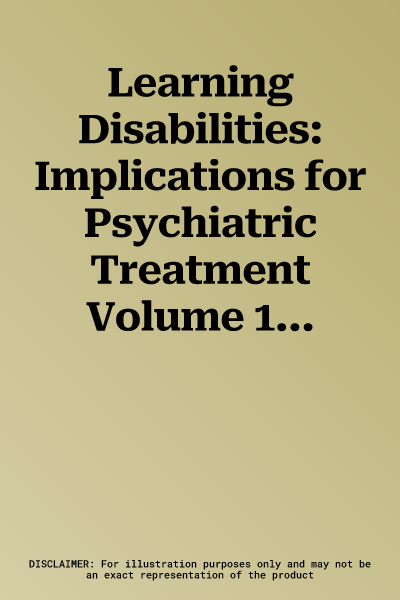There is an increased awareness that learning disorders affect many
areas of both child and adult functioning. It is of utmost importance,
therefore, that professionals have the most up-to-dateLearning
Disabilities: Implications for Psychiatric Treatment information on how
learning disabilities are being identified, the effectiveness of current
treatments, and their long-term outlook.
Although more people have been identified as having a learning
disabilities in the past 20 years, there is no agreement as to how
widespread the disorders actually are. This is due to the fact that
there is still no agreed on definition of learning disabilities, or
objective criteria with which to identify them.
The contributors to Learning Disabilities: Implications for Psychiatric
Treatment, all experts in the field, go a long way toward mapping out
the current terrain. The authors highlight the shortcomings of certain
definitions of learning disability; they illuminate the connections
between disorders; they point out the suspected biological
underpinnings; and they direct our attention to some of the most
significant studies on the long-term consequences of these disabilities.
With all of the chapters extensively referenced, this book serves as an
important resource for those interested in exploring in greater depth
this critical subject.
The contributors present clear and irrefutable evidence as to the role
learning disabilities play in the lives of people who have been
diagnosed with them. Over and over again, we are shown the importance of
early identification and intervention in preventing long-term failure
and demoralization that can be associated with these disorders.
Edited by Laurence L. Greenhill, M.D., a distinguished authority in the
field, Learning Disabilities: Implications for Psychiatric Treatment
will prove useful to professionals of many backgrounds, and provides
practical guidance to psychiatrists, psychologists, students and
residents, and to individuals and families whose lives have been touched
by the presence of these disabilities.

